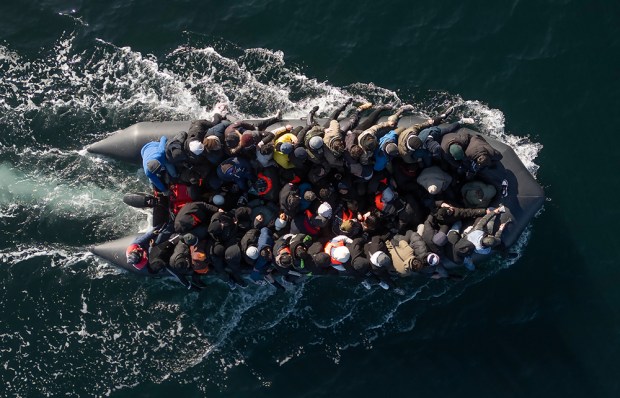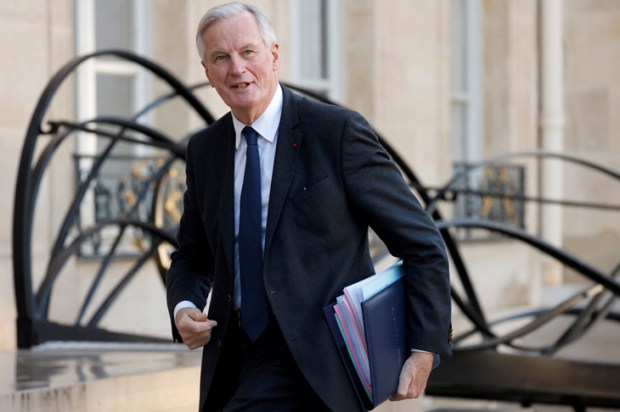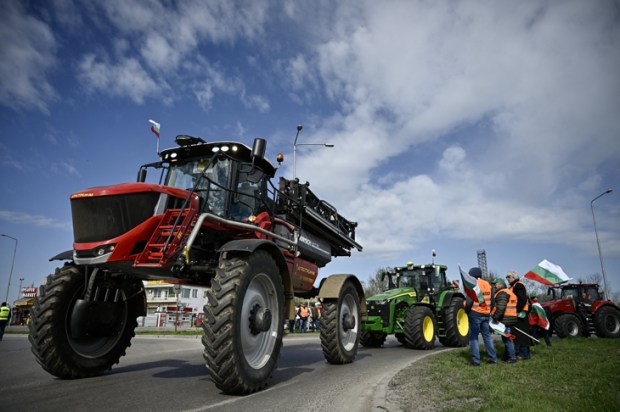For the past five years The Spectactor Australia has been charting the steady rise of Europe’s right. The latest blows to the continent’s once-dominant Green left – the new conservative Dutch government, the rightward shift in the European parliamentary elections and the high chance that Marine Le Pen’s radical right will win government in France – provide the latest vindication that this remains Europe’s political trajectory.
The reasons aren’t hard to fathom. Unsurprisingly there’s been an extended Europe-wide backlash against former German chancellor Merkel’s admission in 2015-16 of over a million Third World illegal immigrants. This has dovetailed with voters’ growing realisation that the Green net-zero agenda has implications beyond more bicycle lanes and bans on plastic straws: soaring utility bills, the war against farming, petrol cars, gas boilers and air travel, state-promoted veganism, and, amid bans on gas and oil production, threats to energy security. Voter enthusiasm to become poorer, colder and less secure in the name of the controversial dogma of climate change has been diminishing fast.
The new right-wing Dutch government is the latest in a long list of recent rightward changes of government – or re-elected conservative governments – in Italy, Sweden, Finland, Greece, Portugal, Switzerland, Hungary and Slovakia. Denmark’s Social Democrats are effectively part of the trend by having Europe’s toughest anti-immigration government. Prime Minister Mette Frederiksen says her ‘dream’ is to have ‘zero asylum-seekers’.
Meanwhile, in the second round of the 2022 French presidential elections, the right achieved its highest-ever vote, with Le Pen’s National Rally scoring 41 per cent. Elsewhere, even where the left has managed to retain or win government, as after recent elections in Spain and Poland, conservative parties won the biggest votes.
This month’s European parliamentary elections highlighted a significant milestone: right-of-centre parties, taken together, now for the first time, have more seats than the left and the Greens. They also came close to securing a majority of seats. Their other striking feature was surging support among the youngest voters for the radical right. In France, 40 per cent of under-24s voted for Le Pen’s National Rally ; among the same age group in Germany, the top choice was the Alternative for Germany.
The European parliament’s right-of-centre parties represent a broad spectrum from the mainstream pro-EU centre-right, like Germany’s Christian Democrats, to those such as Geert Wilders’ radical, firebrand Party for Freedom. They disagree about a number of issues – such as how much support should be given to Ukraine. But they’re likely to find common ground in opposing Brussels’ efforts to normalise mass illegal immigration and in opposing the net-zero agenda. Even Germany’s traditionally EU-consensual Christian Democrats – likely after their strong European election results to return to government after elections next year – want to scrap the EU’s planned post-2035 ban on petrol and diesel cars.
Conservatives approaching majority control of the European parliament is important, but not as much as the shift towards the right securing power in EU member-states – a process Emmanuel Macron is now, a bit unexpectedly, assisting. After Le Pen’s strong showing in France’s 2022 presidential elections, Macron shouldn’t have been surprised that her National Rally won 31 per cent of the French vote at the European elections, humiliatingly twice that for his Renaissance Party. His gamble in calling legislative elections appears based on a calculation that a majority of voters will baulk at giving another win to Le Pen, and that if they don’t, a National Rally government would disappoint its supporters and torpedo Le Pen’s chances of winning the presidency in 2027.
His throw of the dice has caused consternation even among close allies. There’s a good chance it could blow up in his face. Opinion polls suggest his party is likely to be humiliated again and that National Rally will either win a majority or come first by a big margin, giving it a strong claim to form government. So there’s a big possibility France could end up in early July – on the eve of the Paris Olympics – with a government led by Le Pen’s favoured sidekick, the 28-year-old head of National Rally, Jordan Bardella. That would set the scene for three years of combative ‘co-habitation’ with Macron – who as President wields veto and huge other powers, especially over foreign policy – with battles over immigration, Green issues and relations with the EU. It’s hard to see the unpopular Macron emerging well from such a struggle, and the chaos could well lead to early presidential elections.
There’ll be no end to Europe’s rightward shift while its borders remain chaotic and the net-zero push continues. Still, as with Britain’s Tories – as indeed with some among Australia’s Liberal party – it’s not guaranteed that politicians voted into office as conservatives will remain consistent with their promises. So it is that Italy’s Giorgia Meloni, elected on undertakings to stop the boats, has flopped on that front and often seems more keen on cosying up to the EU establishment. Might Le Pen similarly disappoint her supporters? She’s defused previous concerns that her party was antisemitic and soft on Putin. But she’s unlikely to bend to the Euro-establishment à la Meloni.
The EU is likely to face further disappointments in coming months. Austria’s fiercely anti-immigration Freedom party, whose leader has vowed to fight ‘climate communism’, won the country’s European elections vote. After elections in September, Austria will almost certainly join the growing list of EU member states with right-wing governments. Belgium is likely to do likewise. Meanwhile the Brussels establishment can expect payback for its judges’ decision to impose savage fines on right-wing Hungary for not letting in asylum-seekers. With nice timing, on 1 July Budapest takes over the EU presidency for six months. It’s looking forward to the task of presiding over the allocation of the EU’s top jobs.
France’s likely seismic rightward shift will have major implications for its relations with the wider world. Entertainingly, one is that Britain’s probably approaching most left-wing government ever might find itself having to deal not only with a re-elected Donald Trump but with a radically right-wing government in Paris. Labour’s presumed incoming foreign secretary David Lammy is on record describing Le Pen as a ‘political anthrax’, a jibe unlikely to have been forgotten.
Got something to add? Join the discussion and comment below.
@markhiggie1
You might disagree with half of it, but you’ll enjoy reading all of it. Try your first month for free, then just $2 a week for the remainder of your first year.













